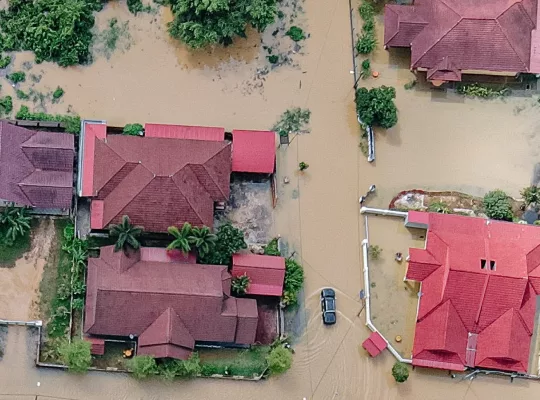Federal officials say the number of West Nile virus cases reported in the United States this year through September is the highest year-to-date total since 1999 when it was first detected in this country. With a reported 1,993 cases of West Nile virus as of September 4th nationwide, including 87 deaths, this outbreak is affecting 48 states and growing daily.
What is the West Nile Virus?
West Nile virus is an infection transmitted by mosquitoes that can cause a variety of medical conditions including encephalitis (inflammation of the brain) or meningitis (inflammation of the lining of the brain and spinal cord). Many people infected with the West Nile virus have little to no signs or symptoms; however in extreme cases, life-threatening illnesses can occur, including inflammation of the brain.
What are Symptoms of West Nile Virus?
Symptoms of West Nile virus vary. Most people, around 80 percent, infected with the West Nile virus have no signs or symptoms.
About 20 percent of people develop a mild infection called West Nile fever. Symptoms for West Nile fever include:
• Fever
• Headache
• Fatigue
• Body Aches
• Skin Rash (occasionally)
• Swollen Lymph Glands (occasionally)
• Eye Pain (occasionally)
Less than one percent of infected people show serious infection signs and symptoms. Such an infection can cause a serious neurological infection, which can include inflammation of the brain or of the brain and surrounding membranes. Signs and symptoms of these diseases include:
• High Fever
• Stiff Neck
• Stupor or Coma
• Severe Headache
• Disorientation or Confusion
• Pain
• Convulsions
• Sudden Weakness
• Partial Paralysis
• Tremors or Muscle Jerking
How long do Symptoms Last?
Mild symptoms, including those for the West Nile fever, usually last a few days to two weeks and tend to resolve themselves on their own. If you experience signs and symptoms of a serious infection, seek medical attention immediately. Symptoms of encephalitis or meningitis can linger for weeks and certain neurological effects may be permanent.
Testing and Diagnosis
A simple blood test and indicate whether you have been infected with the West Nile virus. If your doctor suspects a serious illness, i.e. meningitis or encephalitis, you may undergo a lumbar puncture or brain-imaging tests.
Treatment
There is no specific treatment. Most people recover from the West Nile virus without any treatment. Over-the-counter medications, including pain relievers, can help ease headaches, fevers and muscle aches.
For a more serious illness caused by the West Nile virus infection, such as encephalitis or meningitis, hospitalization is required to prevent any other infections, including pneumonia.
Prevention
Since the West Nile virus is a mosquito-borne illness, avoiding exposure to mosquitoes and eliminating mosquito-breeding sites is the best practice in preventing West Nile virus infection. To help control the mosquito population:
• Eliminate standing water – Mosquitoes breed in standing water.
• Unclog roof gutters
• Empty or cover unused swimming pools
• Change birdbath water at least weekly
Reduce your chances of exposure to mosquitoes:
• Avoid unnecessary outdoor activity during peak mosquito hours – dawn, dusk and early morning
• Wear long-sleeved shirts and long pants when in a mosquito infested area or partaking in outdoor activities during peak mosquito hours
• Apply mosquito or insect repellent with DEET to your skin and clothing
References
http://www.e-firstaidsupplies.com/store/merchant.mvc?Screen=CTGY&Store_Code=FPI&Category_Code=insect-sting-relief
CDC West Nile Guidance
https://www.washingtonpost.com/national/health-science/west-nile-cases-mount-nationwide/2012/09/05/fc484094-f76a-11e1-8253-3f495ae70650_story.html




